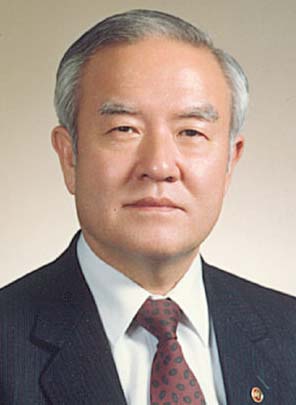Posted on : May.30,2006 11:16 KST
Modified on : May.30,2006 13:43 KST
 |
|
Cho Sun
|
Cho Sun
emeritus professor of Seoul National University, former Deputy Prime minister of Economic Planning, and former Seoul mayor
Following the end of World War I, economist John Maynard Keynes discussed two important factors in shaping the future of Europe in his book, titled “The Economic Consequences of the Peace.” One was that the social order in Europe was not as stable as people generally thought. The other important factor that might see change in Europe was its demographics, he said.
Keynes’ opinion seems now quite prescient 87 years after the fact. Nearly all advanced nations are facing a slowdown in their economic activity due to rapid aging and falling birth rates. The U.S. and advanced nations in Europe are struggling with how to handle illegal migrant workers from Africa, Eastern Europe and South America. The problem has prompted European nations to try to establish a constitutional law for the European Union. In the U.S., a move to set up a barrier across its border with Mexico is gaining momentum. The global economy, saddled with growing imbalances, is grappling with the matter.
South Korea is not yet an advanced country, but the rates at which its birth rate is falling and its population is aging are faster than those of other advanced nations. A sense of crisis for the nation’s future is mounting, with the rate of live births per female of childbearing age at 1.08, the world’s lowest rate. With the seriousness of this problem in mind, the government appears to have drawn up measures to counter the falling birth rate.
What factors have led our birth rate to its record low? For one, living costs are too burdensome, as consumer prices are on a rapid rise. A single-income family has difficulty supporting itself, especially with a child. Private English instruction is an expected must, and a large financial burden. Because of this, mothers who are able to try to take school-aged children to the U.S. with them. This kind of competition among parents gives their children a sense of emotional instability, and would-be parents are faced with too much worry about how they will afford to raise children, rather than having peace of mind.
If social conditions allow parents to have more children and to raise them well, a rising birth rate would be welcomed. However, if education costs are too burdensome and a good quality of life is too hard to come by, a rising birth rate would make people more nervous. What is at stake is how well we educate and treat our children, not our birth rate. Our nation has one of the world’s highest population densities. If we expect our job market to become tighter, the government’s linear policy of increasing the birth rate would be inappropriate. Let’s look to the future with composure.

